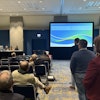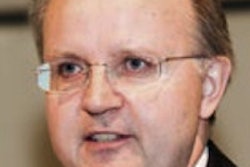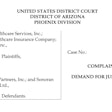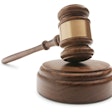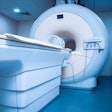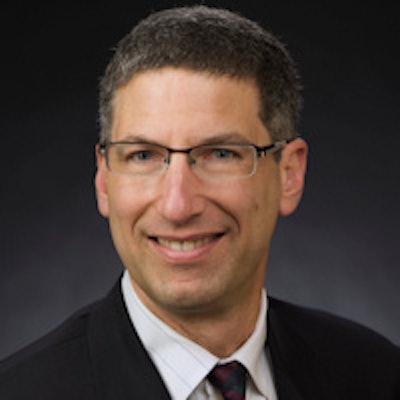
Radiologists often serve as expert witnesses in medical malpractice trials, passing judgment on the image interpretation skills of their colleagues in a sort of legal second opinion. But who offers second opinions on the second opinions? A new start-up called Clear Review aims to do just that, hoping to take the bias out of expert witness testimony.
"We offer a neutral tool that doesn't favor defendants or plaintiffs," Robinson said. "Using Clear Review can speed up the litigation process in a way that's fair."
The importance of expert witnesses
Radiologists who are the subject of malpractice litigation hate it when their colleagues testify for plaintiffs, but expert witnesses offer an essential service. Indeed, radiologists have an obligation to serve in this capacity in the appropriate circumstances, according to a 2012 guidance from the American College of Radiology (ACR).
 Dr. Jeffrey Robinson, president of Clear Review.
Dr. Jeffrey Robinson, president of Clear Review.
Not only does the expert witness deliver an opinion about the conduct of the parties involved in the suit, he or she may also weigh in on physicians' training and experience, the relevant standard of care, the relevance of particular imaging findings or treatments, and the adequacy of the technical equipment used.
"Although the nature of legal proceedings is adversarial, the expert witness must be as impartial and objective as possible," ACR wrote in its guidance.
The issue of retrospective bias -- that experts might interpret a case differently if they already know its findings -- has dogged the expert witness process for years, with both sides accusing the other of being biased and therefore untrustworthy. That's why a service like the one Clear Review provides is so important, according to Robinson; it creates an objective standard that moves beyond he-said, she-said testimony.
"A typical defense view is that the plaintiff's counsel is more interested in winning the case than the truth -- and wouldn't tend to use a service like Clear Review," Robinson told AuntMinnie.com. "And plaintiffs tend to claim that the expert witness for the defense is just protecting his peers, so the defense attorney in a malpractice suit could really have a competitive advantage by being able to demonstrate his expert's objectivity. It's not just one doctor's word against another's."
Making the grade
Clear Review creates a review set of images that have been scrubbed of all identifying information. The set includes between six and 12 real exams and reports, as well as the original case that's the subject of the litigation. The expert witness radiologist then receives a URL to the set, logs in to the Clear Review PACS, and rates how well the original report matches what his or her own interpretation of the case would be, according to a simple and familiar grading system: A, B, C, D, or F.
"We ask them to score how well the image and the report match," Robinson said. "It's intuitive: Everyone knows what an 'A' report is and what an 'F' report is."
The middle ground
Some of the suits filed against radiologists are obvious, representing either grievous mistakes made by radiologists or frivolous claims made by patients (and their attorneys). It's the lawsuits in the middle ground that are harder to resolve, according to Robinson.
"Some litigation is a slam dunk -- the radiologist just blew it, and the parties need to settle and move on," he said. "Others are ridiculous and shouldn't have been filed in first place. But most cases are in the middle. Everything didn't go quite right, things weren't documented like they should have been, and now there's an argument, a duel to the death. At Clear Review, we're taking on those middle cases and helping to sort them out more quickly, fairly, and inexpensively."
Clear View is marketing its services to both plaintiff and defense attorneys. To build a set of exams for a law firm and to send the set to the expert witness costs $2,500; if an attorney wants to have the same set of exams reviewed by more than one radiologist, each extra report is $150, Robinson said. This adds extra fees to the litigation process, in which attorneys pay expert witnesses an hourly rate for consultation, but it may make the whole process more efficient and thus more cost-effective.
"Lawyers want cases to end quickly because then they get paid," Robinson said. "They don't have any need to stretch cases out -- there's no lack of lawsuits. So our services can benefit both the plaintiff and the defense."
"If a plaintiff expert doesn't even identify the exam that's in dispute, or gives it a higher 'grade,' the attorney might think twice about pursuing the suit at all, which saves everyone a lot of money," he continued. "And if the reviewer for the defense picks the exam out of the lineup and identifies it as a problem, the defense counsel might see the wisdom in settling more quickly."

